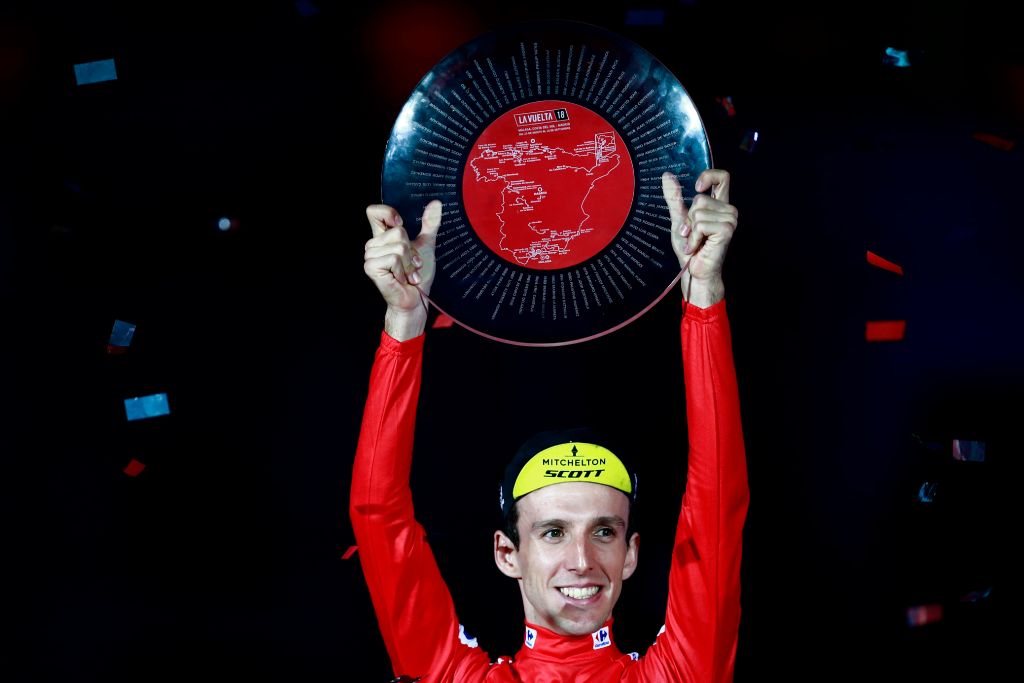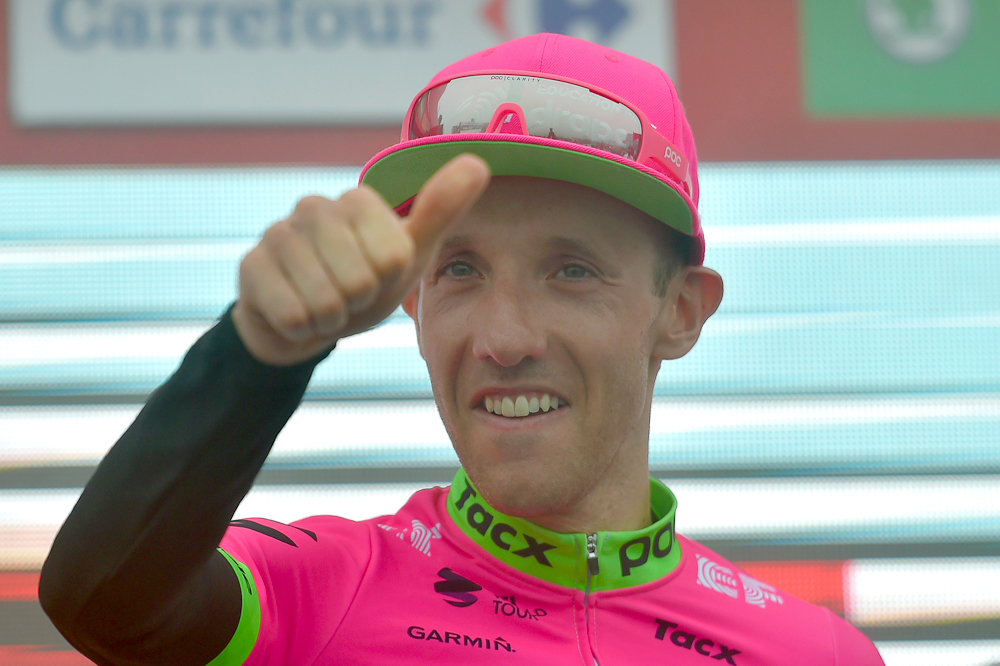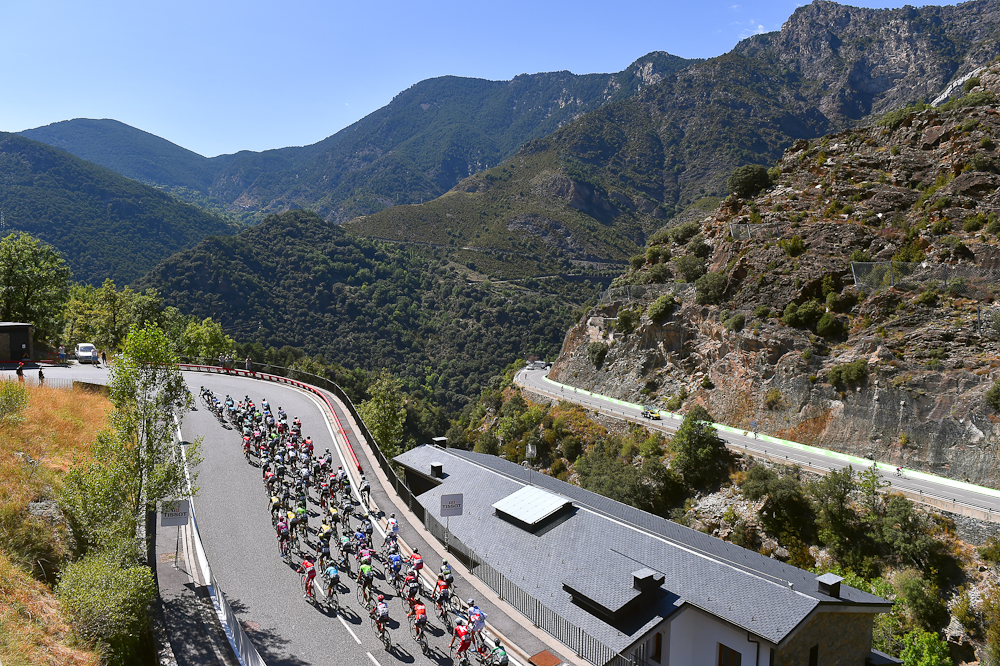Andorra stage offers crucial climbing test in 2019 Vuelta a Espana
Punchy stage features relentless climbing, off-road segment and summit finish



If fans out there are looking for just one stage to watch in next year's Vuelta a España, the race's short but devastatingly difficult trek through Andorra at the end of the first week could well be the one that appeals the most.
2019 Vuelta a Espana to feature eight summit finishes
2020 Vuelta a Espana to begin in the Netherlands with team time trial
Vuelta a Espana rumoured to return to more traditional route in 2019
Vuelta a Espana introduces young rider jersey in 2019
2019 Vuelta a Espana offers eight mountaintop finishes, goes off road
Starting in Andorra la Vella, the Pyrenean principality's capital, stage 9 of the 2019 Vuelta on Sunday September 1 ends after just 96 kilometres of relentless climbing on the Cortals d'Encamp, the first category ascent used for the first time by the Vuelta as a finish back in 2015.
The stage 15 finish on the Encamp was won by Mikel Landa in a solo move, at the end of a stage with 6,000 metres of vertical climbing and described by some, including Movistar team manager Eusebio Unzue, as the toughest Grand Tour stage ever. And four years on the 2019 stage, whilst not quite so hard, still features five categorised climbs; two second category, two first category and one - the Col de la Gallina - a Hors Categorie.
"Andorra is so tough it will almost inevitably be one of the crucial stages for deciding the overall standings," Vuelta race route designer and former Tour podium finisher Fernando Escartin commented to Cyclingnews.
"The route is kind of similar to the final stage of the Vuelta in 2018 in Andorra, and also similar to the Vuelta 2015, but this time we start by going up the Coll d'Ordino in the opposite direction to 2018. Then we take on the hardest part of the Coll de la Gallina," - the final ascent of the 2018 Vuelta.
Following yet another long descent, the Vuelta peloton then face the hardest combination of climbs of the entire day. Two second category ascents, the Cornella and Engolasters, are quickly followed by the Cortals d'Encamp. And with so little distance between the three cols and a chunk of four kilometres of off-road racing on gravel tracks between the Engolasters and the Cortals d'Encamp, as Escartin points out, this final trio of ascents will feel more like a single 22-kilometre climb.
"Overall in terms of just how much climbing there is in such a short space of time I think you could call it the hardest single stage of the 2019 Vuelta." Escartin argued.
Get The Leadout Newsletter
The latest race content, interviews, features, reviews and expert buying guides, direct to your inbox!
"As for that gravel track, it's in pretty good shape, but it'll give another twist to the whole stage, which will only be three hours long, which is going to make it very intense in any case."
"As for Encamp, that's a hard climb because of the altitude, because it reaches 2,000 metres, more than the climb itself. Plus, then there's everything that's come before."
"I don't know if Andorra is the toughest stage of the entire race, and there are plenty of tough ones," added Simon Yates (Mitchelton-Scott), the Vuelta 2018 winner who lives in Andorra.
"That Andorra stage is very short and sometimes, when stages are so short, you can really get everything out, and in the longer ones you have think about keeping something back for the finals. They can be more tricky so it depends on how the race is going."
As for the four kilometres of strerrato in Andorra, Yates says he has been along them "many times. It's actually a short cut to go home. It's ok, very typical of an Andorra stage. And Encamp, I know that climb, but like I say, every stage is very difficult."
Overall, Yates - who has been training in Spain recently - is impressed by the 2019 Vuelta route, and did not specifically rule out racing the Vuelta next September. But the Mitchelton-Scott racer was at pains to emphasise that for now his plans only go as far as the Giro d'Italia.
Looking specifically at what had been revealed of the Vuelta's route, Yates said, "We have a very strong team time trial team, so that stage [in Alicante] is good for us to get off to a strong start, and the stage to Andorra, the roads I know well, too, which is good. Overall, it looks really good."
Asked if he would come back, Yates said, "maybe, maybe. My goal is the Giro, I'll give everything for that and after that I'll decide the rest of the year."
"I don't know yet. I like it here in the Vuelta and if the sensations are good, then I could return. But we have to see after the Giro."
Alasdair Fotheringham has been reporting on cycling since 1991. He has covered every Tour de France since 1992 bar one, as well as numerous other bike races of all shapes and sizes, ranging from the Olympic Games in 2008 to the now sadly defunct Subida a Urkiola hill climb in Spain. As well as working for Cyclingnews, he has also written for The Independent, The Guardian, ProCycling, The Express and Reuters.
